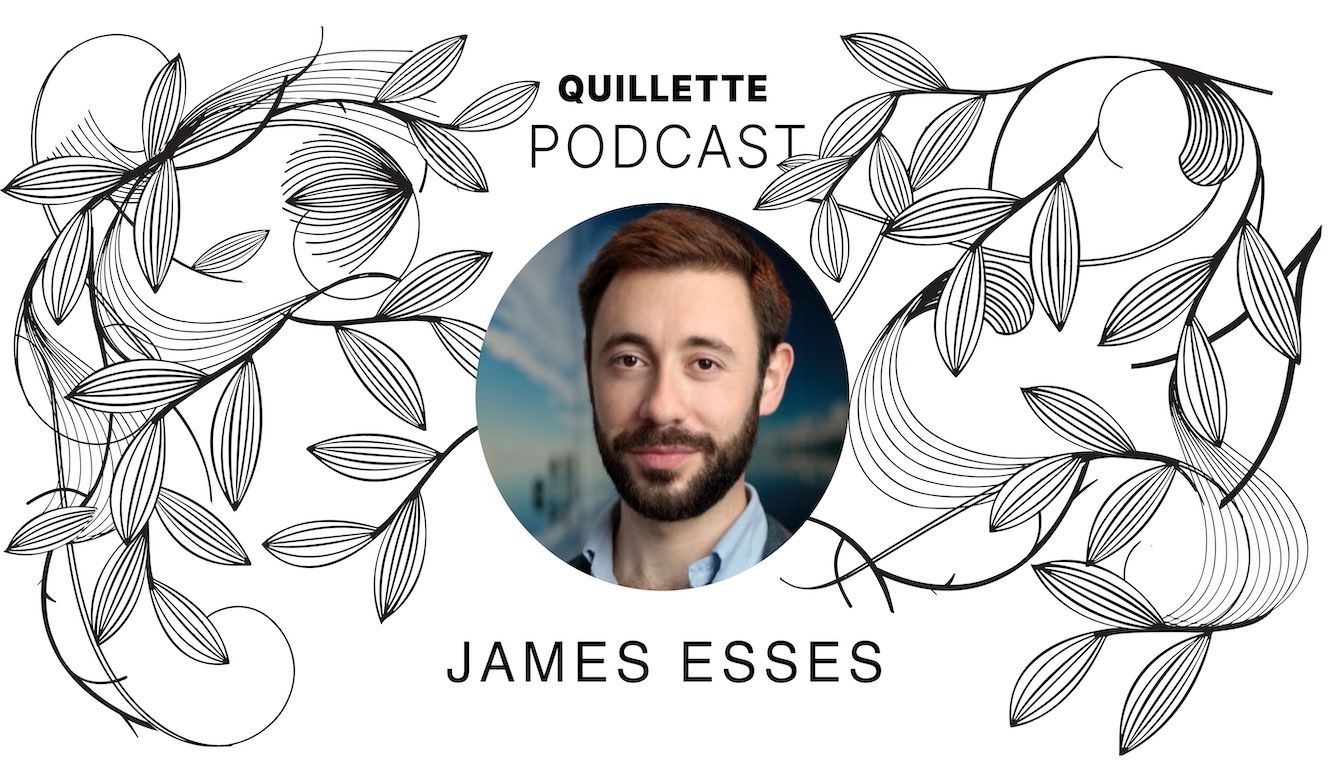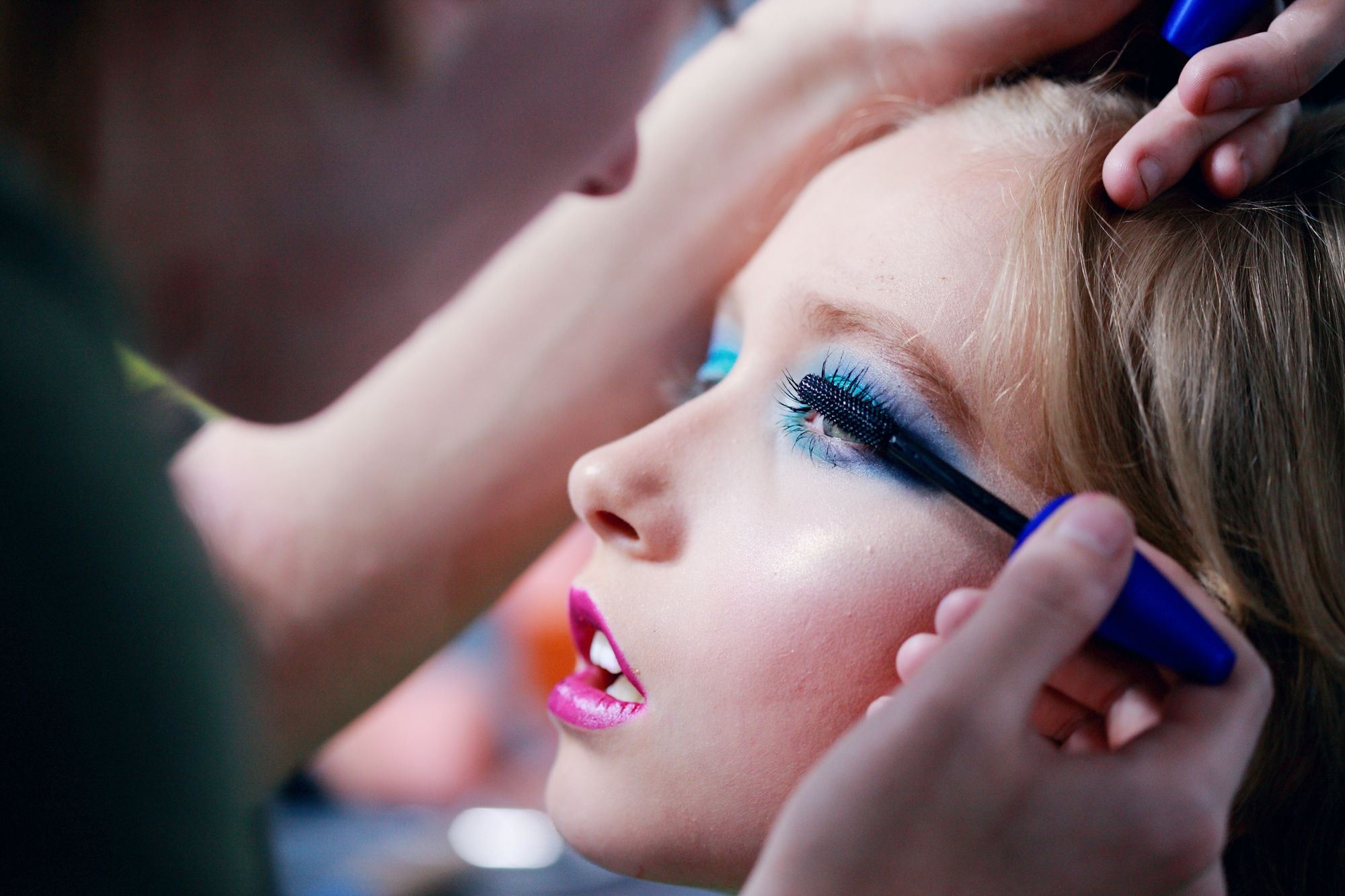Art and Culture
Why Trans Kids Need Gatekeepers
Gatekeeping is not about saying “yes” or “no” straight-up.

I’m a transsexual woman in my thirties who transitioned in my early twenties, and I wish I could have done so earlier. Even so, I am wary of today’s Brave New World of transgender activism in which important safeguards of transition are under attack and any counter opinion, even if made by a trans woman such as myself, are labelled as an attack on trans rights. At first it was easier for me to not ruffle the trans activists’ feathers, but my conscience got the better of me, and now I am continuing to speak up in order to help those who deserve better in their own journey of transition.
Through talking to other trans people in my life, it has become apparent to me that transition surgeries are an answer but not the answer to the long-term health and well-being of gender dysphoria patients. Unfortunately, many trans people get so fixated on surgery for so long, that they may forget that there is more to life and transitioning than just surgery and other medical intervention. The fixation is often driven by the fantasy that surgery, and transition in general, will transform them into a new person, and that all the problems in life will go away.
During my gender transition, I didn’t fixate on surgery even though I was highly dysphoric back then. I’ve had my ups and downs, but I’ve always done okay. To be honest, thinking about sex and gender a lot is unhealthy, particularly during high-conflict public debates on what it means to be transgender and what rights we have to get the help we need. As the debate grows more divisive, the media valorization and glamorization of trans people, especially trans children, is not helping but rather, it is pulling us away from the honest conversations we need to have.
Forty-one percent of transgender people have experienced suicidal ideation or self-harm, though this statistic does not indicate to what extent the attempts were before or after transition, or at what stage of transition. Nevertheless, studies have shown high rates of suicide among (alleged) trans people post-medical transition. Why is this the case and can the quality of transition be a factor?
Traditionally, gender dysphoria patients were expected to undergo extensive ‘talk’ therapy in order to access medical treatment. This is the gatekeeping model, where the ultimate decision on suitability for treatment is made by healthcare professionals. In recent times however, trans activists have argued against what they see as a model built on red tape, preferring the ‘informed consent’ model instead. Under ‘informed consent,’ all the patient needs from the doctor is education and advisement about the risks and benefits of the treatment in question, before making the final decision him/herself. In the simplest terms, trans activism has lead to a degradation of professional medical opinion in the process of transitioning and enabled a medical culture that could rely on nothing more than the personal preference of someone who may or may not have the skills and knowledge to make a sound and informed decision.
The move away from the medical gatekeeping model for treating gender dysphoria is not only unfortunate, it is irresponsible. Over the past few decades, the strictness of the standards of healthcare used to determine suitability for hormone replacement therapy (HRT) and related surgeries have been relaxed significantly. In 2008, the Endocrine Society endorsed puberty blockers as a treatment for trans teenagers. Then in 2011, the World Professional Association for Transgender Health (WPATH) issued new Standards of Care internationally for treating such patients via puberty suppression, while formalizing the ‘informed consent’ model. But it didn’t end there.
Last month here in Australia, new guidelines published in the Medical Journal of Australia gave the green light for potentially more trans children to go on HRT as young as 13, defying international guidelines. Specifically, “decisions about affirming a young person’s gender identity should be driven primarily by the child or adolescent, in conjunction with their family and health care providers.” While this experiment was hailed as world-leading, the minimum legal age for smoking, drinking and voting in Australia remains at 18, and it’s still 16 for consensual sex. So in Australia, a 15-year-old teen cannot consent to sexual activity but they can consent to life-altering medical treatments that they almost certainly cannot fully grasp at that age.
The availability of surgery isn’t the issue nor is removing barriers to surgery; the issue is that trans people are being educated and socially encouraged to abandon a holistic and forward-thinking approach to life. A return to medical gatekeeping, albeit modernized, for the treatment of gender dysphoria would be in the best interest of trans people. This just might slow down transgender contagion, the unhealthy and socially-sanctioned fixation with gender.
I see parallels between this situation, and the situation of trans teenagers stuck in the (predominantly online) echo chamber of gender obsession, where they yearn for a sense of belonging. Compounding this issue is the short-sightedness that’s bred from the self-preoccupations of adolescence. There is more to life than just gender, even for the genuinely gender dysphoric. If we teach our youth that medical intervention is a victory rather than a process, then we are encouraging youth to “achieve” something that may or may not be in their best interest.
Gatekeeping at a minimum requires patients to be evaluated by psychology professionals as suitable for HRT or transition-related surgeries. Prudent gatekeeping requires the minimum, plus giving psychotherapy a ‘fair go’ for at least a few months. A few therapeutic sessions may suffice, or more sessions are warranted before referring to an endocrinologist for HRT. And perhaps psychotherapy should be concurrent with HRT. In short, while the extent of gatekeeping should be based on an individual case-by-case basis, gatekeeping should happen regardless.
This doesn’t mean that historically the gatekeeping model hasn’t had problems, ranging from reliance on gender stereotypes, to narrow sexuality expectations, to mandatory urological examinations that had nothing to do with dysphoria. But that doesn’t mean gatekeeping hasn’t improved or can’t continue to improve.
The role of gatekeeping is critical in examining the underlying causes of distress, and such distress may or may not be strictly gender dysphoria. Indeed, at least 70 percent of people with gender dysphoria at some point also experience psychiatric comorbidity, such as anxiety, depression, anorexia, autism spectrum disorder, ADHD, bipolar disorder, PTSD, borderline personality disorder, or dissociative identity disorder. This 70 percent rate complicates the matter at hand, requiring careful differential diagnosis, exploration of trauma, and questions about sexual orientation. Sadly, this common sense approach is making way for the ‘informed consent’ model, where a quick initial consultation at the doctor immediately follows seeing an endocrinologist to start HRT, with nothing in between except for a consent form.
Emotions can be complex and puzzling because they’re not hard-wired. Specifically, our emotions are founded on past experiences and culture. For example, schizophrenia is largely biologically-driven, but manifests differently in different cultures, and its prognosis is influenced by social factors. As for myself, I generally dress in attire socially deemed female, and my first name is also deemed female, both of which alleviate part of my dysphoria. So how can gender dysphoria be predominantly biological? How can the innate gender identity concept even be valid? It’s ridiculous that the current official diagnostic criteria for childhood gender dysphoria includes “a strong preference for the toys, games, or activities stereotypically used or engaged in by the other gender.” We must distinguish science from trends that lead us to fast conclusions.
This is why psychotherapy as part of gatekeeping is critical for treating gender dysphoria, young or old. And that’s not only because understanding one’s emotions and feelings deeply can improve one’s health and well-being. Many patients, especially younger patients, claiming gender dysphoria find difficulty in describing their dysphoria clearly, due in part to not understanding whether other factors are at play or not, such as family dysfunction, trauma or even social pressure.
I transitioned nearly a decade ago, and though I can now describe my dysphoria more clearly than when I was a teenager, to this day I still struggle to describe it clearly. Anyone who genuinely has gender dysphoria (other than Rapid-Onset Gender Dysphoria), and is self-honest, will admit that describing dysphoria to others is achievable, but it’s a complex task that is unique to each person’s experience and potential barriers. This is why some deep, meaningful and productive conversations between the patient and healthcare professionals can go a long way in properly addressing specific problems that may be at play.
Life is tough. It’s tough for everyone in different ways, and sometimes it’s tougher for trans people, but this doesn’t mean that we can ignore or sidestep the real work and then expect positive outcomes. Trans adults and children do not need to evolve into snowflakes, unable to manage their emotions. They need to build their resilience and confidence, which is what gatekeeping can assist them with.

Transition regret has always been an issue of concern but it has been rare. Now it’s more common than before, and those who regret transition should not be overlooked in transgender discourse (as inconvenient as that is for the trans activists who want to defend the process of ‘informed consent’ as being a perfect fit for all). I underwent counseling and psychotherapy for approximately seven years before I started my transition, and dragging it out for that long did very little to treat my gender dysphoria. Still, the development of my emotional granularity and resilience arising from this was invaluable, and it served as proof that I wouldn’t regret transition.
The shift from gatekeeping to ‘informed consent’ is being pushed as a move towards freedom and lower barriers but, in fact, it is a reduction in the service and attention that people considering transition deserve. The inconvenient truth is that there are even gender dysphoria patients who do not regret transitioning, but regret specific decisions they made, the speed of the process, or how they dealt with their transition emotionally.
In a study of detransitioned women, 65 percent received no psychotherapy before starting HRT, and most who did receive psychotherapy received little of it. These are victims of the new ‘informed consent’ model, and the transgender contagion is closely tied to this phenomenon. When we remove gatekeeping and apply ‘informed consent’ to teenagers, the issues become more troubling. This is a slippery slope that gives little regard to the reality of the young person’s brain:
The rational part of a teen’s brain isn’t fully developed and won’t be until age 25 or so…Adults think with the prefrontal cortex, the brain’s rational part. This is the part of the brain that responds to situations with good judgment and an awareness of long-term consequences. Teens process information with the amygdala. This is the emotional part. In teen’s brains, the connections between the emotional part of the brain and the decision-making center are still developing—and not necessarily at the same rate. That’s why when teens experience overwhelming emotional input, they can’t explain later what they were thinking. They weren’t thinking as much as they were feeling.
Compounding the challenges related to this issue of cognitive development is that social gender transition is the first step to medical transition and by taking that first step we risk inadvertently creating unnecessary internal and external pressures to medically transition for the wrong reasons. So if the appropriateness of the ‘informed consent’ model for young adults is at best, questionable, that behooves the healthcare profession to vigorously gatekeep children from unnecessary transition. This is not an issue of personal freedom but rather a moral obligation to give our youth the best resources we have.
Let’s be clear: it is not transphobic to respectfully question someone’s self-determined gender identity while giving them a robust process to help them transition with optimal mental health, but it is certainly cisphobic to guilt parents into believing that if they don’t support their child’s gender transition, that the child will end up suicidal. Not treating gender dysphoria with medical transition can lead to suicide, however, this entire process is fraught with complexity and a gender dysphoria patient could commit suicide for other reasons that also must be addressed. Playing the suicide card as a means to win a political debate is just plain gross.
It’s obvious why trans activists are more comfortable with playing the suicide card, than with both the detransition phenomenon and the gatekeeping model, and I can understand why. I don’t like that I don’t have curves like other women, and I don’t like my deep masculine voice. I don’t like that I didn’t get hormone blockers in high school, but that doesn’t make it any more ethical for me to advocate the ‘informed consent’ model to self-indulge in my woes at the expense of other people’s experiences and mental stability.

Common sense must prevail in approaching what is a difficult and complex subject matter, but where can you find common sense these days post-gatekeeping around the world? Clinical social worker Lisa Marchiano posits in her “Guidance for Parents of Teens with Rapid Onset Gender Dysphoria”that psychotherapeutic treatments are harmless and worth a try, including somatic therapies, dialectical behavior therapy, and psychodynamic psychotherapy. More importantly, The guidance provides sensible advice to parents on how to cautiously manage their children with gender dysphoria, with the kind of compassion and level-headedness that I wish my parents had when I was growing up. Marchiano’s “New Guidance for Rapid Onset Gender Dysphoria” further elaborates on what is essentially a guide to common sense parenting applicable to all families (with or without any gender dysphoric children):
Parents who meet a child’s initial announcement with loving support but without affirmation were more likely to see their child desist in my experience. It appears that the more teens are supported in a belief that they are a member of the opposite sex, the more entrenched this belief becomes, making later desistance more complicated.
Of course, if the child doesn’t desist, and their dysphoria simply grows in the face of common sense parenting and psychotherapy, then that’s proof that perhaps gender transition is more appropriate under those circumstances. I am proof of that. Gatekeeping is not about saying “yes” or “no” straight-up. Gatekeeping is about prudent medical and mental health processes, because even the 2017 Endocrine Clinical Practice Guidelines for gender transition states that “with current knowledge, we cannot predict the psychosexual outcome [whether or not a person eventually identifies as transgender] for any specific child.” But even the law now seems to think otherwise.
Until recently in Australia, children under 18 years old with gender dysphoria required family court approval to undergo medical treatment, including mastectomy at age 15, even if they have parental and medical permission. This approval process was expensive and time-consuming, and therefore especially unnecessary under the robust gatekeeping model. It was argued that “the courts follow medical advice in their decision-making anyway, making the courts [sic] process unnecessary.” However, in the Brave New World of ‘informed consent,’ the scrapping of the family court’s approval process earlier this year couldn’t have come at a worse time. Apparently it’s 2018, and the Family Court of Australia doesn’t need know about children potentially having transition-related surgeries.
So much for the law doing its job, because at the end of the day, gender dysphoria is not yet well understood. The best conclusion thus far is that there are likely complex biological, psychological, social and cultural factors that cause gender dysphoria. And given that the law has given up, it behoves the healthcare profession even more to resuscitate the gatekeeping model, despite pressure from the trans activists not to. Anyone who thinks that these decisions are better made by judges than healthcare professionals is clearly not thinking through the full ramifications of their activism.
Failing that, here is my message to today’s parents: if your son or daughter is experiencing gender dysphoria, show him or her the compassion and love they deserve, but don’t let that compassion or love silence you from asking important questions and testing every assumption along the way. There is no room for complacency. No parent should ever be silenced or told what to think on important health issues. Instead, they should know that dialogue and professional oversight is not only warranted but in fact an important part of the gatekeeping process. This not only helps to ensure the future happiness of their child but could perhaps even save their life.






